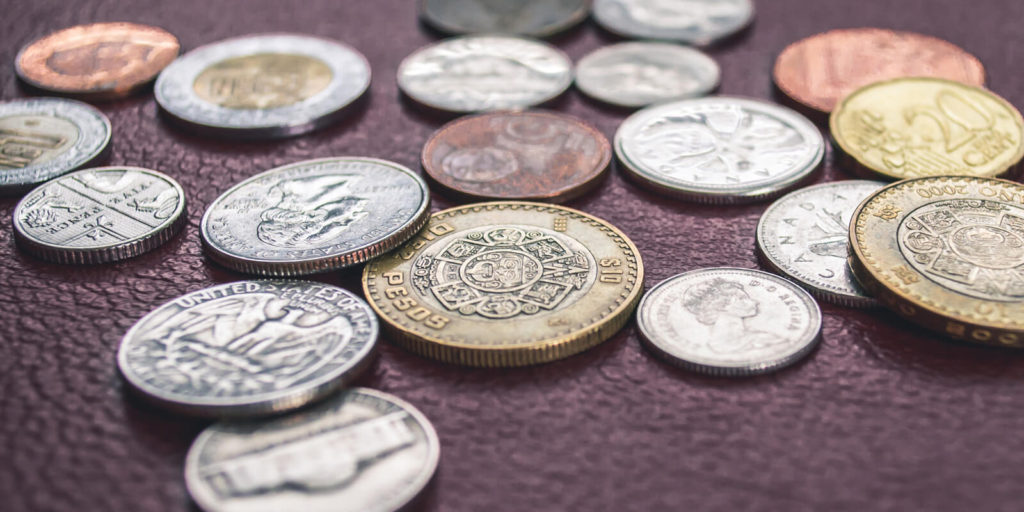I opened my first bank account on April 9, 1992. Sitting at a large oak desk, I filled out paperwork which allowed me to store my money. But I wasn’t prepared to decide on the four digit code which would protect my personal wealth. I settled on the date as an easy choice: 4-9-9-2.
As a teenager, I savored the thrill of an official acknowledgment of what I owned. My property was safe, protected, and accessible only to me. A piece of imprinted plastic gave me the dignity and power of personal wealth.
My efforts to store wealth were prescribed by my culture. I opened an account at a financial institution. American dollars represented the savings I stored. An ATM granted access. My money earned interest. In another part of the world, a boy might receive his first goat or a newlywed couple their inherited plot of land.
The Technology of Economy
We live within an economic system: a way of managing the production, distribution of goods, and trade within a society. Such systems are not a fixed feature of the world we live in, like rivers or mountains. They are not delivered by divine decree. Men and women create them to extend their capability to live in community.
Our economy is a technology.
In the biblical story of creation, God provides raw materials for humans to create technology. Did he provide similar ingredients for the development of an economic system? The location of paradise offers an answer.
A river flowed out of Eden to water the garden, and there it divided and became four rivers. The name of the first is the Pishon. It is the one that flowed around the whole land of Havilah, where there is gold. And the gold of that land is good; bdellium and onyx stone are there. The name of the second river is the Gihon. It is the one that flowed around the whole land of Cush. And the name of the third river is the Tigris, which flows east of Assyria. And the fourth river is the Euphrates. — Genesis 2:10-14
For centuries, people have searched in vain for this geographical place. Perhaps it existed in the past. Perhaps there are problems with the translation. But one thing is clear: the garden of Eden is not only described as a paradise for human life. It is an also an ideal location to build a society.
My kids love a board game called Settlers of Catan. The game allows you to develop your own society in competition against other players. A huge part of the game’s strategy comes in the placing of your first “settlement.” Current resource availability weighs against future access and expansion opportunities.
Now consider the garden of Eden as an initial location for human life to develop. Four rivers provide easy access around the world. One leads to gold: a universal store of wealth across culture and history. Another leads to precious raw materials. Two final rivers lead to locations which would eventually feature several great empires.
The garden of Eden contained everything necessary to develop an economy.
- Meaningful Work
- Access to gold as a store of wealth
- Natural resources to cultivate
- Future opportunity for trade with powerful empires
Eden swelled with economic possibilities.
A New Economy
Most of us rarely think about the creation of an economy. We consider ourselves unwilling participants of the systems surrounding us. But we live in a unique period of history. Within our lifetimes a new economy will emerge.
In 2014, The Guardian predicted the collapse of capitalism. This will precipitate a completely new economic system enabled by technology. One group anticipates a new Industrial Revolution. Technology will blur the lines of physical, digital, and biological spheres. This transformation will give way to a fresh structuring of economic life.
Digital currency provides new possibilities for storing wealth. The virtual property of data, information, and access shifts our understanding of the distribution of goods. Innovative mechanisms for trade promise the reality of a truly global enterprise.
Creating A Just Economy
As a revolutionary economy emerges, Christians should be asking a critical question. How can we shape the economic systems of the future according to values of the kingdom of God? If socialism emphasizes caring for everyone, communism promises universal equality, and capitalism empowers individual autonomy, what values will our new economy promote?
Wouldn’t we want to see generosity, individual responsibility, justice, controlled spending, and care for the outcast characterize a new economy? Shouldn’t we stand against an economic system which makes it easier for the powerful to oppress the vulnerable? Can a system make it harder for the corrupt to take advantage of others? Are privacy and anonymity the best overriding economic values to form a just society?
Do I have a role as an individual in shaping our economy? Is government the answer? Or political affiliations? These are difficult questions. But we must ask them if we are to represent the kingdom of God on earth.
I opened a bank account. Doing the same for my children is on my to-do list. But what will their children do? What kind of economy will they live within? Will Christians have taken part in its formation? Will it protect people and provide opportunities for a healthy society? Or will it marginalize the weak and reward the ruthless?
God gave us raw ingredients. Our economy is a technology we assemble. Let’s use whatever influence we have to build a good one.
Father to five; husband to one; helping Christians engage thoughtfully as they follow Jesus Christ.
Pastor at Peninsula Bible Church in Palo Alto, CA since 2007. Graduated from Stanford University with a degree in Industrial Engineering and worked for Oracle Corporation as a Senior Product Manager designing software solutions.

